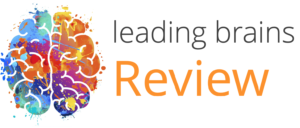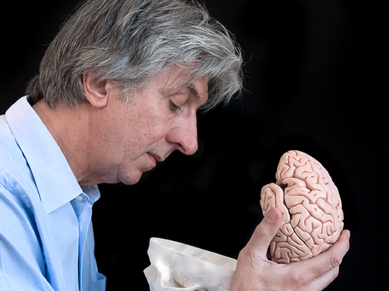Different areas of the brain are associated with empathy – this new research shows how brain regions synchronise to induce empathic responses.

Brain Scans Show How to Coach and Inspire More Effectively
Quick Hits
Daily brief research updates from the cognitive sciences

It’s not often that there is a study that directly connects coaching and brain scanning – unfortunately. Enter Case Western Reserve University in Cleveland, USA and their coaching research lab who got 47 undergraduates into a brain scanner after a coaching session and while watching clips of messages to themselves – the results were interesting.
The results are not just important in coaching scenarios but also in an behavioural change situations such as many found in businesses and in education. So what did they find?
The protocol explored the relationship between the real self, the person you are at the moment with all your weaknesses, and the ideal self, the person you would like to be. These are common themes in coaching and a key question is should you focus on what your real self is not doing well or motivate with an idealistic image of yourself in the future, or, as is common, a mix of both?
So which wins out. Well the 47 graduates first had a 30-minute coaching session that focused on the real self and then where put in a brain scanner and while in the scanner were fed (by video) 96 messages that were focused on hope, compassion, mindfulness and playfulness in the ideal self. They then stated whether they agreed or disagreed with the statements.
What the researchers were trying to see is if these two states would conflictwith each other or could operate in tandem – after all in the real world we often have two states in our heads – short-term and long-term planning, for example. To do this they used a visual attention task using Navon Figures that are incongruent or incongruent (for example a letter T made from letter Es). These conflict the visual system where as others such as viewing a landscape do not.

And indeed the researchers saw that there was evidence of conflicting ressource allocation in the brain – this can be seen when the brain uses overlapping areas rather than separate areas. When individuals are stimulated with the real self this can therefore conflict with the ideal self – causing an inherent incongruence and conflict in the brain.
This gives strong biological evidence that focusing and the real self can conflict and therefore limit resources when working towards the ideal self – and therefore cause friction and blocks. This is good evidence that focusing more on the ideal self puts you in a state that is more able to scan the broad environment and identify salient themes.
This in addition to experiencing more positive emotions, being open to new ideas, and having more intrinsic motivation. With the one caveat that different brains may respond differently which I explored in a popular article here: Whose Brains Respond to Carrots and Whose to Sticks?
So the key takeaway is that focusing more on the ideal self enables greater engagement, higher motivation, less friction, a more open perspective, and better feelings. This applies to coaching scenarios but just as much to educational contexts and business where often the focus is on what needs to change – focus on the ideal instead.

Andy Habermacher
Andy is author of leading brains Review, Neuroleadership, and multiple other books. He has been intensively involved in writing and research into neuroleadership and is considered one of Europe’s leading experts. He is also a well-known public speaker, speaking on the brain and human behaviour.
Andy is also a masters athlete (middle distance running) and competes regularly at international competitions (and holds a few national records in his age category).
References
Jack, A. I., et al. (2023)
When fixing problems kills personal development: fMRI reveals conflict between Real and Ideal selves.
Frontiers in Human Neuroscience.
doi.org/10.3389/fnhum.2023.1128209.
More Quick Hits
How Seven Habits Boost Brain Function and Lower Depression Risk
Diversity in Startup Teams Increases Survival In Changing Environments
Different areas of the brain are associated with empathy – this new research shows how brain regions synchronise to induce empathic responses.
All Work And No Play, Really Does Make Jack A Dull (and Ineffective) Boy
Different areas of the brain are associated with empathy – this new research shows how brain regions synchronise to induce empathic responses.
Do Conservatives and Liberals Have Moral Brains?
Different areas of the brain are associated with empathy – this new research shows how brain regions synchronise to induce empathic responses.
New Discovery: Swirling Spirals Move Across Your Brain
Different areas of the brain are associated with empathy – this new research shows how brain regions synchronise to induce empathic responses.
Zapping the Brain Improves Maths Ability
Different areas of the brain are associated with empathy – this new research shows how brain regions synchronise to induce empathic responses.













